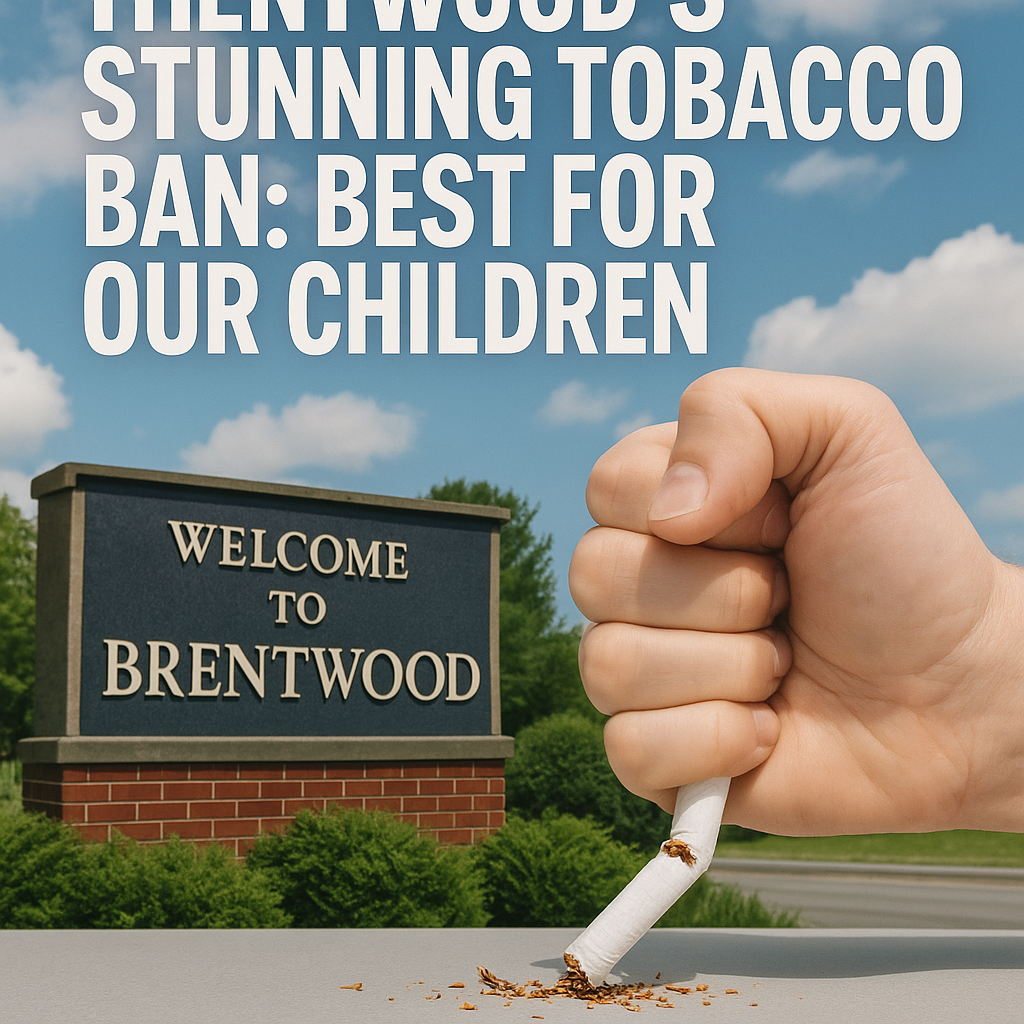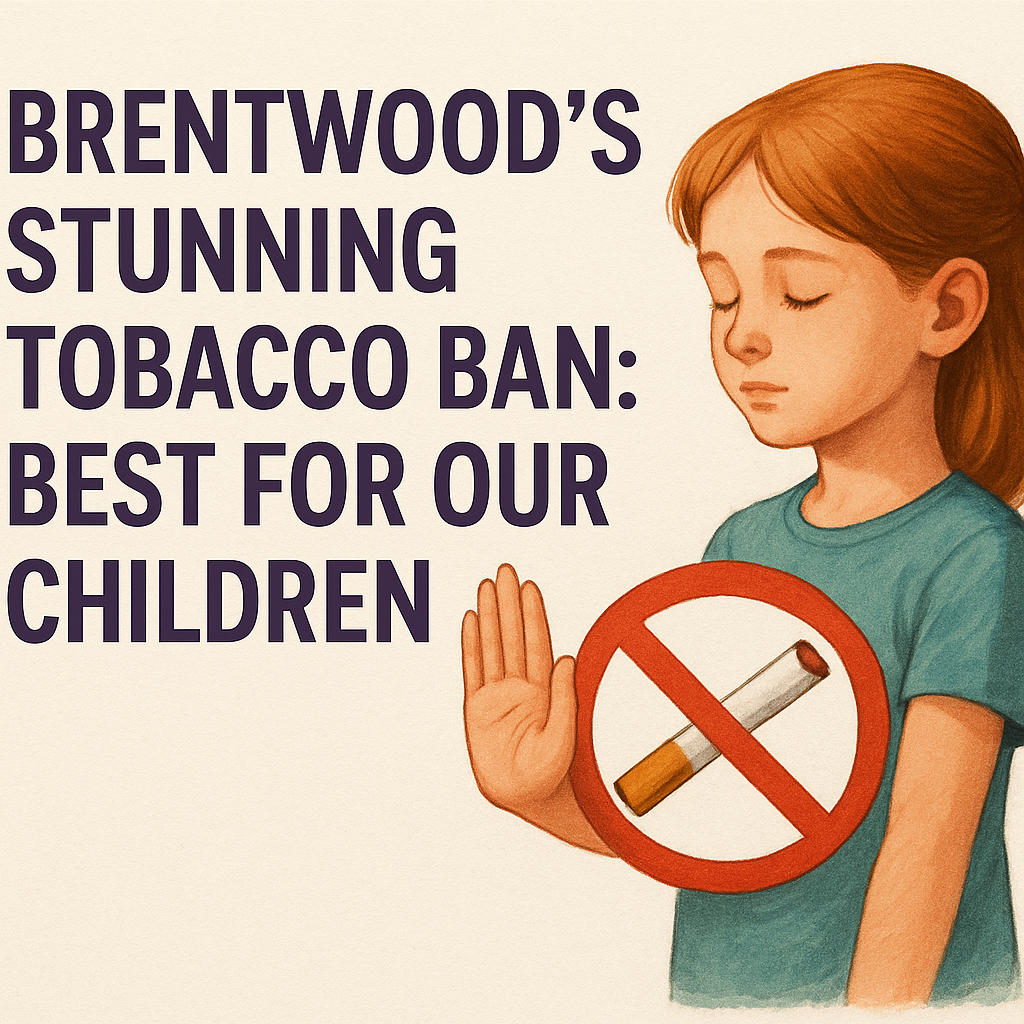Brentwood’s Stunning Tobacco Ban: Best for Our Children
Brentwood’s Stunning Tobacco Ban: Best for Our Children
Brentwood’s stunning tobacco ban goes beyond mere regulation; it represents a significant step towards safeguarding the health and futures of local children. This legislation, designed to prohibit tobacco retailers from operating within 500 feet of schools, has sparked a diverse array of opinions among community members, health advocates, and business owners.
The Need for Stricter Tobacco Regulations

In light of rising youth tobacco use, particularly e-cigarettes, the Brentwood City Council’s decision to implement this ban has garnered support from public health organizations. According to a report from the Mercury News, nearly 80% of high school students have been exposed to tobacco products in their own schools. Advocates argue that creating a buffer zone around educational facilities is not merely a preventative measure but a necessary action to reduce young people’s exposure to tobacco products.
This move aligns with broader public health goals, as research consistently shows that limiting access to tobacco near schools can decrease smoking rates among adolescents. As Dr. Alice Long, a public health expert, noted, “Reducing the proximity of tobacco retailers to schools is crucial for minimizing youth initiation into smoking.” By positioning the ban as a proactive approach, Brentwood sends a clear message that the health of its youth is a community priority.
Diverse Perspectives on the Ban
While many celebrate the ban as a public health victory, not everyone agrees on its implications. Small business owners and retailers express concerns about the potential economic impact. Some argue that the ban may lead to decreased foot traffic in certain areas and could hurt local businesses that rely on tobacco sales. As stated in a report from SFGate, one local shop owner emphasized, “We already struggle with the impact of online shopping; this could be the final nail in the coffin for us.”
Further complicating the debate is the idea that such policies might disproportionately affect lower-income communities, where tobacco shops are often concentrated. Critics caution that merely relocating tobacco retailers may not solve the issue and could instead displace businesses that serve essential community needs.
The Community’s Voice: A Mixed Bag of Opinions
Brentwood residents display a wide range of views. During public meetings, some parents expressed relief at the ban, praising the council’s efforts to create a healthier environment for their children. One parent stated, “It’s about time we take these steps to protect our kids. They shouldn’t have easy access to harmful products.”
Conversely, others have taken to social media to express frustration. Comments highlighting concerns about personal choice and free market principles frequently arise, with some citizens asserting that responsible adults should have the option to purchase tobacco products without restrictive proximity laws.
The Broader Context: Balancing Public Health and Economic Concerns
Brentwood’s tobacco ban reflects a growing trend across the United States: municipalities increasingly prioritize public health over economic interests in tobacco retailing. Recent studies indicate a significant decrease in youth smoking rates in cities that have implemented similar restrictions, underscoring the potential efficacy of such laws.
However, the challenge remains in striking a balance between protecting public health and supporting economic vitality. The importance of dialogue between stakeholders becomes paramount. Community forums and discussions that include business owners, parents, and health experts can help address these concerns, promoting a nuanced approach that considers the broader implications of such legislation.
Future Considerations
As Brentwood embarks on this new chapter of tobacco regulation, it faces the dual challenges of ensuring compliance and monitoring effectiveness. Establishing clear guidelines for enforcement and providing support for affected businesses can alleviate undue pressures on the local economy. Communities across the nation will undoubtedly watch Brentwood’s approach closely, as they navigate their own public health policies amid evolving societal norms regarding tobacco use.
In summary, Brentwood’s stunning tobacco ban, aimed at protecting children, marks an important step forward in public health policy. As varied opinions continue to unfold, it is imperative to maintain an open dialogue that respects all community members, ultimately striving towards a healthier future for the next generation. The complexities of this issue will require ongoing examination and nuanced understanding, ensuring that the aspirations for better health do not inadvertently hinder economic opportunities.








